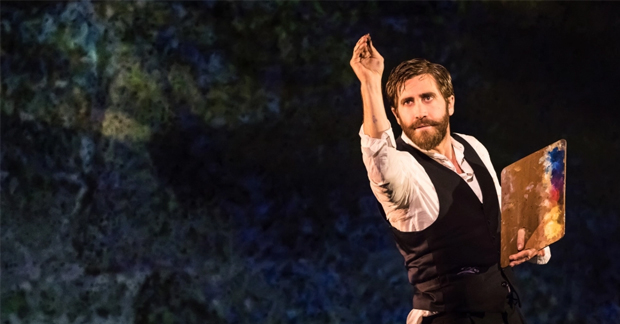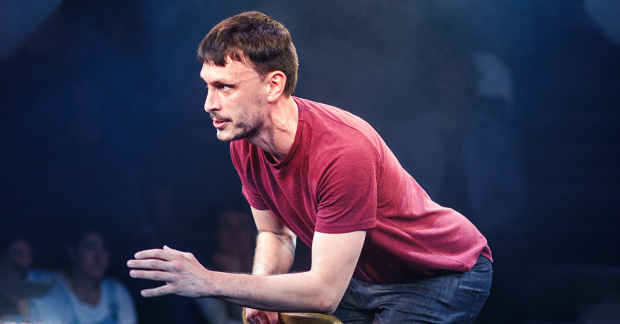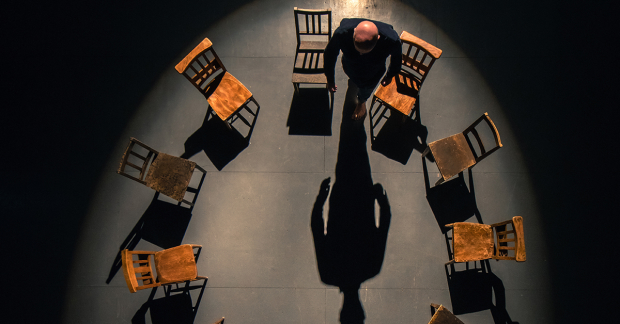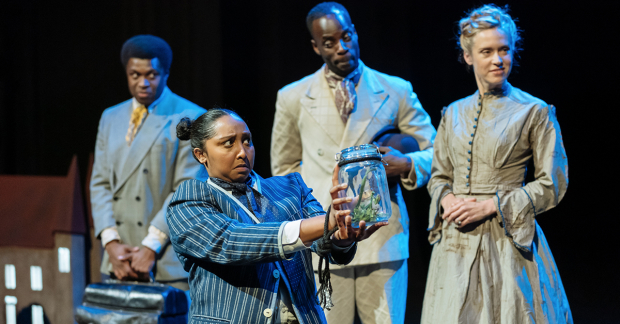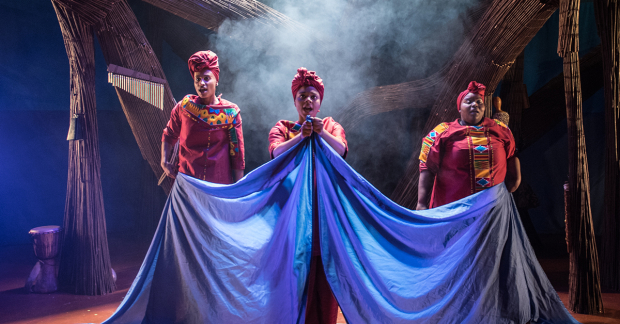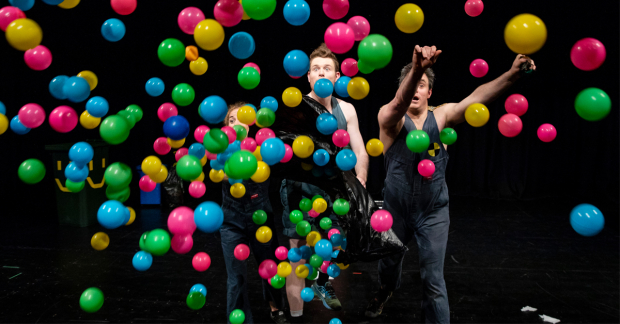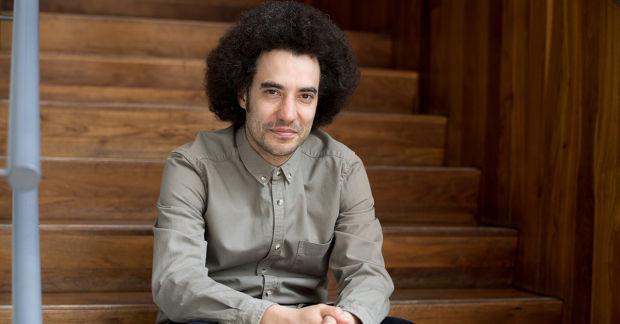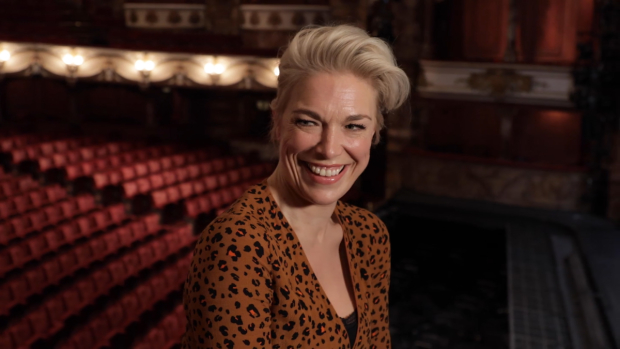Review: I, Cinna (the poet) (Unicorn Theatre)
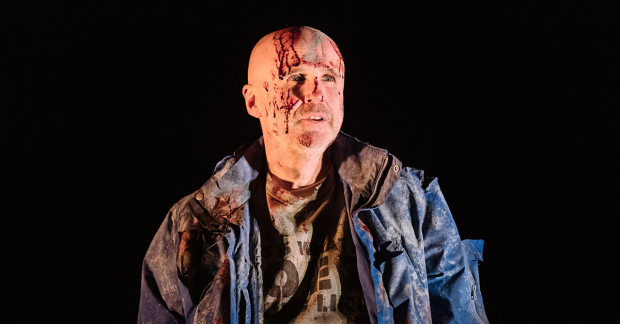
© Helen Murray
I, Cinna (the poet) is the fifth performance in Tim Crouch's "I" series, retelling Shakespearean classics from the perspective of minor characters. In Shakespeare's Julius Caesar, Cinna only has 17 lines before being torn apart by an angry mob keen on avenging Caesar's death.
Crouch's character is a troubled poet, constantly distracted by both the news updates on his phone and his own inner critic. He hides away from the riots in the safety of his home – a wooden table housing his laptop and a raw chicken, plus a kettle and tea caddy on an upturned cardboard box. His pockets are filled with scraps of paper on which he has attempted to scribble poetry and eventually adds to the growing pile discarded haphazardly beside the wastepaper basket. Upstage, Lily Arnold's design shows a huge sheet of crumpled paper – hung up like washing to dry – onto which video footage from recent police protests are projected.
How does one write a poem? What should he write about when he wants to write about love, but the world only presents him with war? And ultimately what is the point in writing anything, what can words do? Cinna repeatedly calls himself the "brackets to life." He is expendable, utterly disposable, without consequence to the wider considerations of society. Mr Cellophane, anyone?
Each audience member is given a small notebook and a pencil, and Crouch invites us to write with him throughout the play. The live writing begins with names – Caesar, Mark Antony – with the spelling projected onto the board.
Originally designed for children aged 11+, one might perhaps expect I, Cinna to be linear and safe in its storytelling. Yet Naomi Wirthner's confidently directed show is permeated with violent imagery and intense questions about the role of the artist in an age of political uprising. At one point, Cinna eagerly attempts to perform augury – the ancient Roman religious practice of interpreting omens from the observed flight of birds – by gutting a raw chicken on the table.
Sometimes Owen Crouch's soundscape is a quiet, anxious pulse beneath the words. Sometimes – as Cinna talks about premonitions – birds are heard chirping. And at other times, the sound is an assault on the senses, techno beats pounding to accompany Will Monks' video footage of police behind their riot gear, of canned gas hurled into the air, of angry and crying and bloodied citizens.
The show feels intimate and important. Crouch holds attention throughout a performance that is both carefully scripted and improvisational. The audience are invited to share opinions on the current political leader ("Blonde!" calls out a child in the front row of the audience) and even to write the climax of the play itself. At the very height of the drama, they become scribes and storytellers – Cinna is dead and gone.
There are moments when the show begins to lull and there's an irony in the unyielding obedience of the audience, who jot down everything the performer tells them to. But perhaps that's the point – how quick are we to obey words? How happy are we to hand over our power to those who direct us?
There is something in this show for all ages. I Cinna (the poet) is about words and obedience and power, politics and language and equality. It's about the questions humanity still doesn't have the answer to, regardless of age.



